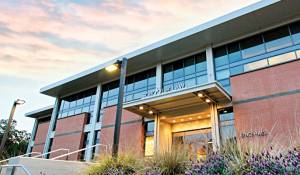hai
i did my LLB in India, at present iam doing my practice as well iam undergoing my Masters in Contract law.
MY wish is that i want to practice in Australia, i was impressed by ANU which supports me in 2 way
1. it is nearer to sydney where i heard that there is many law firms
2. i think it this is the university which can tune to my financial position comparing to others.
friends
FIRST say me whether my move was correct. regarding the two points mentioned above.
SECOND is that whats the course i have to choose - the completion of the course should help me to practice there.
THIRD if so you are suggestiong a course wat will be fees and others amounts which i have spend altogether as a international student
i will be very much thankful if anybody helps me.
bye bye
i need your kind help
Posted Apr 15, 2006 22:02
i did my LLB in India, at present iam doing my practice as well iam undergoing my Masters in Contract law.
MY wish is that i want to practice in Australia, i was impressed by ANU which supports me in 2 way
1. it is nearer to sydney where i heard that there is many law firms
2. i think it this is the university which can tune to my financial position comparing to others.
friends
FIRST say me whether my move was correct. regarding the two points mentioned above.
SECOND is that whats the course i have to choose - the completion of the course should help me to practice there.
THIRD if so you are suggestiong a course wat will be fees and others amounts which i have spend altogether as a international student
i will be very much thankful if anybody helps me.
bye bye
Posted Apr 29, 2006 21:10
If you want to work in Sydney you would be better off doing your LLM at the University of Sydney.
Posted May 01, 2006 14:01
My Friend:
Taking into consideration that your primary intention in doing a LLM in Australia is to facilitate your future practice, i would strongly recommend an 'employer centered' evaluation.
IN Australia, the biggest law firms customarily regard Sydney University law school as the best. The only possible match, is Melbourne University law school. It is quite safe to say that the entire legal profession in the state of New South Wales in dominated by graduates of Sydney Uni law school, from the most imminent Queens counsels to the justices of the federal supreme of Australia (the High Court), within which four out of the seven current justices are graduates of Sydney Uni law school).
ANU is a research institution in the middle of a desert, the city has nothing to offer, the law school is not a particularly well established institution, in the sense that it does not have any of the 'big names' teaching there..
in terms of cost effectiveness,, i could still recommend Sydney Uni law school. The sydney uni law school is located 5 metres opposite to the supreme of New South Wales; the legal and financial district is within arm length, the prospect of finding part time job is very good, provided that you possess the necceeary skills,
By now,,you may have already correctly guessed where i've read law, Sydney Uni law school.. lol...
all the best with your decision
Taking into consideration that your primary intention in doing a LLM in Australia is to facilitate your future practice, i would strongly recommend an 'employer centered' evaluation.
IN Australia, the biggest law firms customarily regard Sydney University law school as the best. The only possible match, is Melbourne University law school. It is quite safe to say that the entire legal profession in the state of New South Wales in dominated by graduates of Sydney Uni law school, from the most imminent Queens counsels to the justices of the federal supreme of Australia (the High Court), within which four out of the seven current justices are graduates of Sydney Uni law school).
ANU is a research institution in the middle of a desert, the city has nothing to offer, the law school is not a particularly well established institution, in the sense that it does not have any of the 'big names' teaching there..
in terms of cost effectiveness,, i could still recommend Sydney Uni law school. The sydney uni law school is located 5 metres opposite to the supreme of New South Wales; the legal and financial district is within arm length, the prospect of finding part time job is very good, provided that you possess the necceeary skills,
By now,,you may have already correctly guessed where i've read law, Sydney Uni law school.. lol...
all the best with your decision
Posted May 01, 2006 14:04
Furthermore, for informaiton on admission requirements see the site of NSW Law Society: www.lawsociety.com.au
Posted Jun 14, 2006 09:30
I'll try to provide more practical advice than the rant from the Sydney law grad above.
(1) An Australian degree WILL NOT get you the right to live and work in Australia. You will need to get a visa through one of the ordinary channels (sponsored work, family reunion, skilled migration etc). Check the requirements at the Department of Immigration and Multicultural Affairs (http://www.immi.gov.au)
In doing so, you should bear in mind that Australia does not suffer from a shortage of lawyers. Realistically, law firms will only sponsor work visas for people with prior top tier US or UK experience.
(2) An Australian LLM will not of itself be enough to qualify you for admission. Indian LLBs are not regarded as equivalent and depending on which jurisdiction you seek admission in (I presume NSW), you should check with the Law Society as to which additional courses you'll be required to complete. (These usually include constitutional law, litigation and possibly property.)
See http://www.lawsociety.com.au for the Law Society of NSW
(3) As to which is the best Law School in Australia, I'll repost my comments in response to previous threads.
I should disclose my own background - ANU and Oxford.
The ranter from Sydney makes some unrealistic claims about Sydney Law School. For what it's worth, I think Sydney ranks in the top group of law schools, along with UNSW, ANU and Melbourne. However, his claims that Sydney is a better law school than Melbourne are not justified. Melbourne has consistently been ahead of Sydney both as a law school and as a university for many, many years. [And I'll emphasise, again, that I'm not a Melbourne alumnus!]
Now - reposting my comments from a previous thread:
[It does depend a little on whether you are more interested in teaching quality or research. As in the US and the UK, the prestige of a law school is determined primarily by its research output. On this measure, there is a widespread feeling that ANU and Melbourne have pulled away from the two Sydney schools over the last 5 years and that the Sydney schools are at a low ebb in terms of high profile researchers. No doubt, they'll recover. Have a look at the faculty lists from these law schools; if you are common law-trained, you should be able to assess the strength of the faculty from their publications.
I'll make some more specific comments about ANU.
First of all, the ANU has a peculiar structure. The Faculties (including the Law School) conduct undergraduate and postgrad teaching and research, whereas the Research Schools conduct exclusively research and postgrad supervision. Law profs are found both in the College of Law (i.e., the law school) and in the Research School of Social Sciences. So, if you wish to look them up, check the Regulatory Institutions Network (regnet.anu.edu.au) and the Law Program in the Research School (lawrsss.anu.edu.au) as well as the Law School itself (law.anu.edu.au).
Second, ANU is popularly perceived (probably quite accurately) as a more 'academic' law school. It has a particular strength in jurisprudence and traditional links to the Oxford legal philosophy school. The Oxford legal philosophers, John Fleming, Patrick Atiyah, Peter Cane and Jane Stapleton are amongst former and current faculty members. Stapleton recently became the first foreigner appointed to the Council of the American Law Institute, for her work on product liability.
ANU's other obvious areas of strength are in constitutional, administrative, international and IP law.
I say this because if you are looking for a more practically-oriented, commercially focussed LLM, you may well do better at Melbourne or Sydney ...]
So, as you can see, I'm prepared to concede that if you're looking for a more practical, commercially-oriented LLM, you may be best served by avoiding my alma mater, the ANU. However, the suggestion by the Sydney-sider, above, that the ANU has no 'big names' is asinine. Because of ANU's research focus, the situation is rather the opposite: it has the lion's share of 'big names', measured in terms of the international prominence of the following researchers:
John Braithwaite (regulatory policy, particularly competition and criminology);
Peter Drahos (regulatory policy)
Hilary Charlesworth (international law)
Peter Cane (jurisprudence, torts, administrative law)
Jane Stapleton (torts, product liability)
Leslie Zines (constitutional law)
Michael Coper (constitutional law)
John McMillan (administrative law)
Robin Creyke (administrative law)
Simon Bronitt (criminal law)
Stephen Bottomley (corporations law)
David Hambly (torts and family law)
Jim Davis (torts, conflicts)
Don Greig (contract, conflicts)
Ann Kent (China law)
Kent Anderson (Japanese law)
Kim Rubenstein (international law)
Mick Dodson (native title and indigenous policy)
Melbourne has a similarly impressive list of researchers but I don't think anyone actually engaged in legal academia in Australia would seriously suggest that Sydney competes on that level at the moment. These things are cyclical, though. In a few years' time, the relative strengths will be no doubt have changed again.
The fact that four of the seven Justices of the High Court of Australia are Sydney graduates is a reflection of Sydney University's age, not an indication of the present quality of the law school. And the fact that the senior ranks of the profession are 'dominated' by Sydney graduates (as the guy above asserts) is, again, a reflection of the fact that when those senior lawyers went through law school - there was only one law school in the state!
(4) Finally, I might take the opportunity to address the poster's claims that ANU is located in a "desert". I've lived in London, NY and HK - cities that are considerably larger and more cosmopolitan than Sydney - and yet, I enjoyed my years in Canberra.
Ususally, the kind of one-liners used by the poster above are made by Sydneysiders who have never lived anywhere other than Sydney. So, here's the rub: by international standards, Sydney is a bit naff. Sydney is great in the couple of square miles around the CBD and the inner eastern and northern suburbs (you won't be able to afford to live anywhere near this). But outside that central area, it's rather crap.
So, if you enjoy crumbling infrastructure, trains that never arrive and an urban university campus with overcrowding and no green space, go for Sydney!
Canberra might not be Manhattan but if you're looking for a year's hard work on your LLM in a beautiful and peaceful campus environment, then the Canberra might just be ok - and it's only a 3 hour drive to Sydney anway!
(1) An Australian degree WILL NOT get you the right to live and work in Australia. You will need to get a visa through one of the ordinary channels (sponsored work, family reunion, skilled migration etc). Check the requirements at the Department of Immigration and Multicultural Affairs (http://www.immi.gov.au)
In doing so, you should bear in mind that Australia does not suffer from a shortage of lawyers. Realistically, law firms will only sponsor work visas for people with prior top tier US or UK experience.
(2) An Australian LLM will not of itself be enough to qualify you for admission. Indian LLBs are not regarded as equivalent and depending on which jurisdiction you seek admission in (I presume NSW), you should check with the Law Society as to which additional courses you'll be required to complete. (These usually include constitutional law, litigation and possibly property.)
See http://www.lawsociety.com.au for the Law Society of NSW
(3) As to which is the best Law School in Australia, I'll repost my comments in response to previous threads.
I should disclose my own background - ANU and Oxford.
The ranter from Sydney makes some unrealistic claims about Sydney Law School. For what it's worth, I think Sydney ranks in the top group of law schools, along with UNSW, ANU and Melbourne. However, his claims that Sydney is a better law school than Melbourne are not justified. Melbourne has consistently been ahead of Sydney both as a law school and as a university for many, many years. [And I'll emphasise, again, that I'm not a Melbourne alumnus!]
Now - reposting my comments from a previous thread:
[It does depend a little on whether you are more interested in teaching quality or research. As in the US and the UK, the prestige of a law school is determined primarily by its research output. On this measure, there is a widespread feeling that ANU and Melbourne have pulled away from the two Sydney schools over the last 5 years and that the Sydney schools are at a low ebb in terms of high profile researchers. No doubt, they'll recover. Have a look at the faculty lists from these law schools; if you are common law-trained, you should be able to assess the strength of the faculty from their publications.
I'll make some more specific comments about ANU.
First of all, the ANU has a peculiar structure. The Faculties (including the Law School) conduct undergraduate and postgrad teaching and research, whereas the Research Schools conduct exclusively research and postgrad supervision. Law profs are found both in the College of Law (i.e., the law school) and in the Research School of Social Sciences. So, if you wish to look them up, check the Regulatory Institutions Network (regnet.anu.edu.au) and the Law Program in the Research School (lawrsss.anu.edu.au) as well as the Law School itself (law.anu.edu.au).
Second, ANU is popularly perceived (probably quite accurately) as a more 'academic' law school. It has a particular strength in jurisprudence and traditional links to the Oxford legal philosophy school. The Oxford legal philosophers, John Fleming, Patrick Atiyah, Peter Cane and Jane Stapleton are amongst former and current faculty members. Stapleton recently became the first foreigner appointed to the Council of the American Law Institute, for her work on product liability.
ANU's other obvious areas of strength are in constitutional, administrative, international and IP law.
I say this because if you are looking for a more practically-oriented, commercially focussed LLM, you may well do better at Melbourne or Sydney ...]
So, as you can see, I'm prepared to concede that if you're looking for a more practical, commercially-oriented LLM, you may be best served by avoiding my alma mater, the ANU. However, the suggestion by the Sydney-sider, above, that the ANU has no 'big names' is asinine. Because of ANU's research focus, the situation is rather the opposite: it has the lion's share of 'big names', measured in terms of the international prominence of the following researchers:
John Braithwaite (regulatory policy, particularly competition and criminology);
Peter Drahos (regulatory policy)
Hilary Charlesworth (international law)
Peter Cane (jurisprudence, torts, administrative law)
Jane Stapleton (torts, product liability)
Leslie Zines (constitutional law)
Michael Coper (constitutional law)
John McMillan (administrative law)
Robin Creyke (administrative law)
Simon Bronitt (criminal law)
Stephen Bottomley (corporations law)
David Hambly (torts and family law)
Jim Davis (torts, conflicts)
Don Greig (contract, conflicts)
Ann Kent (China law)
Kent Anderson (Japanese law)
Kim Rubenstein (international law)
Mick Dodson (native title and indigenous policy)
Melbourne has a similarly impressive list of researchers but I don't think anyone actually engaged in legal academia in Australia would seriously suggest that Sydney competes on that level at the moment. These things are cyclical, though. In a few years' time, the relative strengths will be no doubt have changed again.
The fact that four of the seven Justices of the High Court of Australia are Sydney graduates is a reflection of Sydney University's age, not an indication of the present quality of the law school. And the fact that the senior ranks of the profession are 'dominated' by Sydney graduates (as the guy above asserts) is, again, a reflection of the fact that when those senior lawyers went through law school - there was only one law school in the state!
(4) Finally, I might take the opportunity to address the poster's claims that ANU is located in a "desert". I've lived in London, NY and HK - cities that are considerably larger and more cosmopolitan than Sydney - and yet, I enjoyed my years in Canberra.
Ususally, the kind of one-liners used by the poster above are made by Sydneysiders who have never lived anywhere other than Sydney. So, here's the rub: by international standards, Sydney is a bit naff. Sydney is great in the couple of square miles around the CBD and the inner eastern and northern suburbs (you won't be able to afford to live anywhere near this). But outside that central area, it's rather crap.
So, if you enjoy crumbling infrastructure, trains that never arrive and an urban university campus with overcrowding and no green space, go for Sydney!
Canberra might not be Manhattan but if you're looking for a year's hard work on your LLM in a beautiful and peaceful campus environment, then the Canberra might just be ok - and it's only a 3 hour drive to Sydney anway!
Related Law Schools
Hot Discussions
-
MIDS - 2024-25
Nov 15 12:52 AM 1,837 16 -
Harvard LLM 2025-2026
23 hours ago 1,674 7 -
Warwick or Birmingham
Nov 10, 2024 1,162 5 -
LL.M. Scholarship Rates?
Nov 09, 2024 2,503 5 -
EU citizen barred in the US -- will an LLM from an EU school help me practice law somewhere in the EU?
Nov 15 12:58 AM 137 4 -
NUS vs Peking
Nov 09, 2024 183 4 -
LLM in ADR
Oct 23, 2024 390 4 -
LLM in Germany 2024
Nov 09, 2024 822 4



